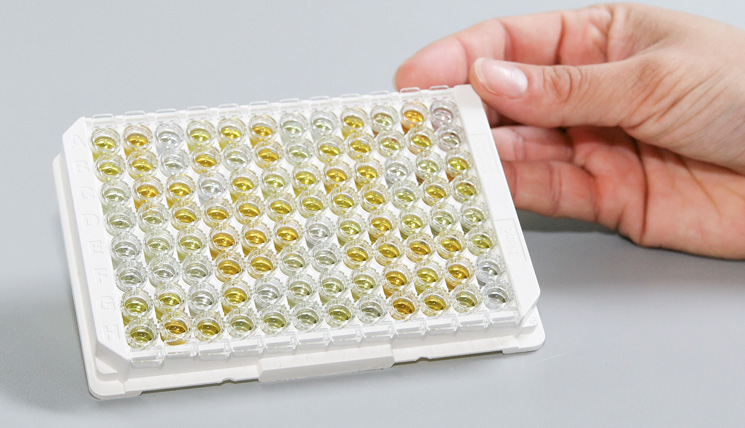Earlier this year, EUROIMMUN announced the availability of the first serological test systems for diagnostics of Zika virus infections. The infectious disease had rapidly spread in Latin America, especially in Brazil, during the past year. Suspicion regarding a link between the virus infections and the increased rate of malformations of newborns’ heads (microcephaly) precipitated concerns in the whole world. Since then, a high number of studies and publications have been focusing on the question of reliable diagnostics.
While systems for direct detection of the virus have the disadvantage of providing reliable results only during the first days of infection, serological tests often hold the problem of a high cross reactivity. Therefore, researchers from the Medical Center, University of Freiburg and the Bernhard Nocht Institute for Tropical Medicine (Huzly et al.) analysed the specificity of the novel EUROIMMUN Anti-ZIKV ELISAs (IgM and IgG) using serum samples from European patients with confirmed flavivirus infections or vaccinations as well as from patients with other acute virus infections (sera with polyclonal IgM antibodies).
| Cohort | n | Anti-ZIKV ELISA IgG | ||
| Negative | Borderline | Positive | ||
| TBEV infection | 21 | 21 | 0 | 0 |
| TBEV vaccination | 52 | 52 | 0 | 0 |
| Dengue virus infection | 10 | 10 | 0 | 0 |
| Yellow fever vaccination | 15 | 15 | 0 | 0 |
| Hepatitis C virus infection | 16 | 16 | 0 | 0 |
| Akute Zika virus infection | 11* | 5 | 1 | 5 |
| Past Zika virus infection | 1** | 0 | 0 | 1 |
* 10 Brazilian patients, of whom 6 are positive/borderline; 1 German tourist, initially tested IgG-negative ** 2. serum sample of the German tourist IgG-positive one year later
| Cohort | n | Anti-ZIKV ELISA IgM | ||
| Negative | Borderline | Positive | ||
| TBEV infection | 38 | 38 | 0 | 0 |
| Dengue virus infection | 16 | 16 | 0 | 0 |
| Yellow fever vaccination | 15 | 15 | 0 | 0 |
| Polyclonal IgM | 52 | 49 | 2 | 1 |
| Zika virus infection | 11 | 1* | 0 | 10 |
* German tourist, serum sample from day 3 after onset of symptoms
The Anti-ZIKV ELISAs proved to be highly specific: Neither the IgM nor the IgG ELISA revealed cross reactivities with antibodies against related flaviviruses such as tick-borne encephalitis virus, dengue virus, yellow fever virus or hepatitis C virus (100% specificity). Only three out of 49 sera with polyclonal IgM reacted with the Anti-ZIKV ELISA (IgM). These results demonstrate the high specificity of the recombinant NS1 antigens which is applied as substrate in the ELISAs. Furthermore, the tests are also very sensitive: 10 out of 10 serum samples from Brazilian patients with confirmed acute or recent Zika virus infections were tested positive in the IgM ELISA (100% sensitivity), in six samples IgG antibodies were detected additionally.
The authors concluded that the Anti-ZIKV ELISAs were reliable and helpful diagnostic tools to test and counsel patients, pregnant women and travellers returning from Zika virus-endemic regions – even in individuals with a history of other flavivirus infections or vaccinations, thus presenting pre-existing antibodies.
